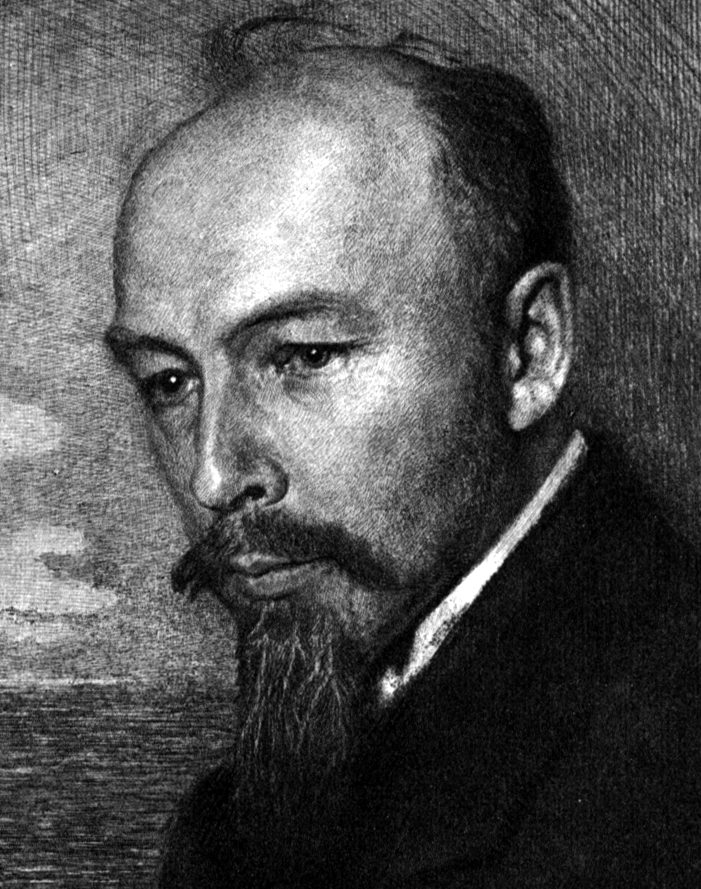
The School of Wisdom was founded in 1920 in Darmstadt, Germany by Count Hermann Keyserling (1880–1946). The Count had just become one of the most popular authors of the day from is first book, Travel Diary of a Philosopher. At the same time as his best seller luck he had very bad luck at home. The Russian communists confiscated his family estate in Estonia and he had to flee for his life. His families position there went back centuries. One of his ancestors is the Count Keyserling who commissioned Bach to create the Brandenberg Concertos. Herman Keyserling fled Estonia in late 1918 and roamed for a short time as a homeless refugee. Still, he was a famous author from a titled family and was given shelter at the Bismarck family estate just outside of Berlin.
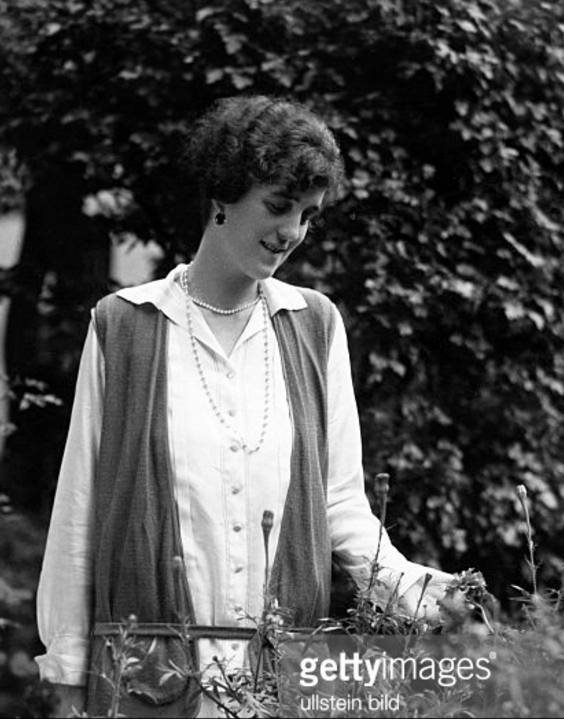

A year later Keylserling married Otto Bismark’s granddaughter, Countess Maria Goedela Bismarck (1896–1981). Marrying a Bismark was a big deal back then. Apparently silly haircuts for prematurely balding men were all the rage. Maria, then only 23 years old, must have found the 39 year old Count devilishly handsome. Reportedly Hermann had a way with words. He was known for his unique intelligence, intense spell-binding rhetoric and diverse scholarly interests.
Shortly after his honeymoon Hermann and Maria moved to Darmstadt, Germany, to start the School of Wisdom. Darmstadt was then attempting to become a small town haven for artists and intellectuals. Hermann invited many of his friends to participate in this new venture, including psychologist, Dr. Carl Jung; sinologist and translator of the I Ching, Richard Wilhelm; theologian, Paul Tillich; German novelist and Noble prize winner, Hermann Hesse; and, Noble prize winning Indian poet, Rabindranath Tagore. It was a very auspicious beginning.
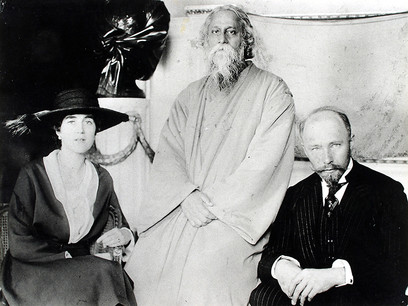
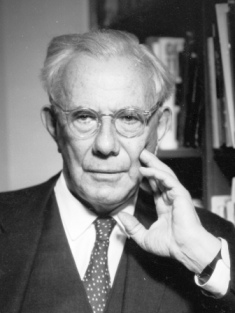
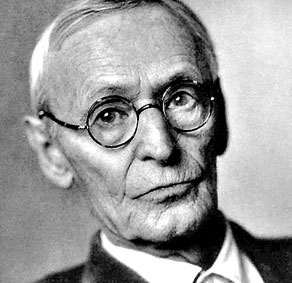
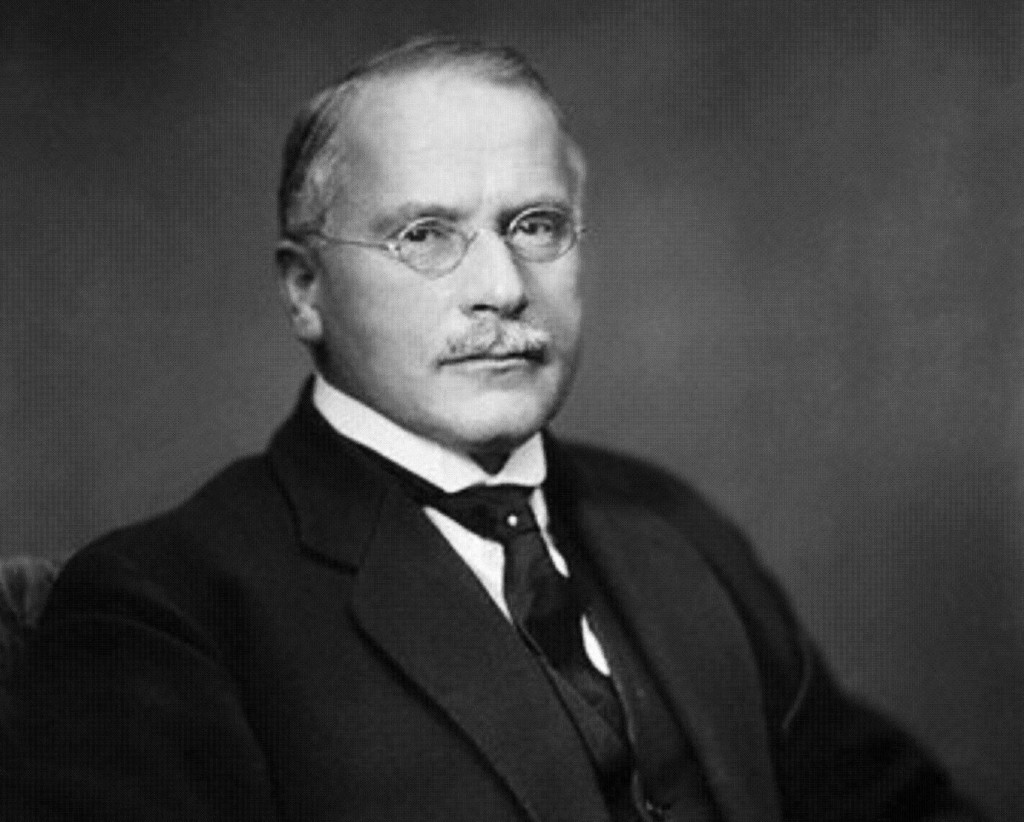
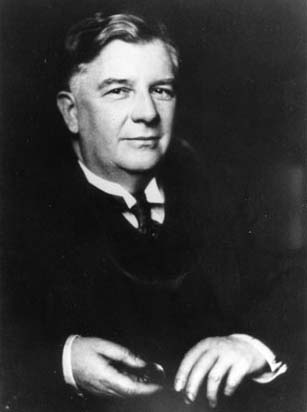
We have created two pages providing more information on two of the School of Wisdom’s most notable teachers: Rabindranath Tagore and Richard Wilhelm.
Count Keyserling’s friends were happy to come hang-out, give an inspirational speech to the public, listen to other speeches, have private dialogues, eat dinners and meet other people interested in School of Wisdom ideas. It was a kind of private salon that opened at least once a year to the public. Today we would think of it as a Ted Talk type event. People flocked to the School of Wisdom from all over the world.
Count Keyserling was one of the first Western philosophers to conceive and promote a universal planetary culture, beyond nationalism, but preserving cultural diversity. He promoted a new world order based on recognition of the equal value of non-western cultures and philosophies. Unlike other spiritual leaders of the day, Keyserling did not set himself up as a guru, or establish any kind of personality cult. Instead, he encouraged the equal participation of many others in the School of Wisdom and the polyphony of multicultural beliefs. It was a kind of spiritual democracy where the unifying force was the inner force cultivated by a variety of practices including prayer, meditation and psychological analysis.
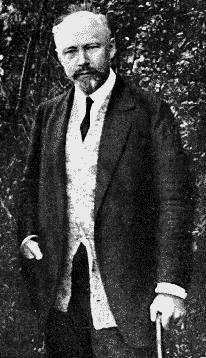
Keyserling believed that the old policy of militarism was dead. Military states were wrong and so was War. Count Keyserling instead argued that the world’s only hope lay in the adoption of international basic rights and principles. In connection with his political writings, he promoted a type of aristocratic rule inspired by Plato’s Republic. Count Keysering was the first to coin the term Führerprinzip, for leadership principle. He thought that certain “gifted individuals” were “born to rule” on the basis of Social Darwinism. It was part of his attempt to embody the classic ideas of Plato’s republic. Under Hermann’s implementation the Gold Leaders were a new type of aristocrat drawn mainly from the successful business class. Political scientists would later classify him as another elitist, not appreciating the philosophic basis. His political writing were always a minor part of his writings, which were primarily devoted to spiritual topics.Then in the late 1920s the National Socialist party started to gain in popularity. The Nazis then stole and perverted Herman Keyserling’s idea of Fuhrer to mean an exalted dictator above the law. Keyserling reacted by speaking out even more vehemently in opposition to Hitler and the Nazis. Although conservative by nature he vehemently rejected all racism.
The Nazis responded with what Keyserling called a campaign of vilification against him and the School of Wisdom. The Count kept on writing and speaking out. When Hitler came to power the Nazi government revoked Herman’s citizenship because he was an immigrant from Estonia. The Nazis also revoked the citizenship of his two sons, even though they were born in Darmstadt and even though they were the great grandsons of Bismarck. The Count kept writing and speaking out. Hitler then closed the School entirely and exiled the Keyerlings to virtual house arrest in northern Germany. The two Keyserling sons were drafted into the Army. Herman and Maria were isolated and impoverished. Herman’s health deteriorated in the poor conditions. The School of Wisdom was over. It’s symbol, the open angle standing for inclusivity, was defeated by the Swastica.

The School of Wisdom remembers those days well. We remain opposed to dictators and to the whole notion of strong man leadership. We promote the rule of law, not men. Although this is not a vendetta for us, it is personal. We will not be shut down by Nazis again!
Early Years of the School of Wisdom
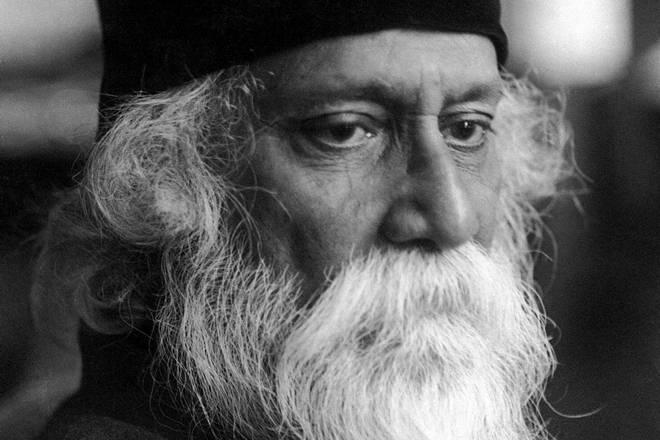
During its initial years between the two world wars the School of Wisdom served as a spiritual beacon of a newly emerging world consciousness. It was intended by Count Keyserling to be a center of education for a future global community not trapped by local cultural belief systems. The featured speaker at the school’s opening in 1920 was the Nobel Prize winning author and educator, Rabindranath Tagore, whose own Santiniketan University in Bengal (also known as Visva Bharati) enshrined the same goal of the education of the universal human being. The opening program texts were called “Politics, Economics, Wisdom” and “Newly Emerging World” and were translated and published around the world.
In the twenties and early thirties, before it was closed by the Nazis, the School of Wisdom met annually in Darmstadt, Germany. People came from around the world to attend these conferences. Many more would read the transcripts of the speeches given there. They were published worldwide in numerous languages under the name Der Leuchter, meaning The Yearbook. Speakers like Hermann Hesse and Carl Jung (shown below) loved the approach, even if they did not always love the aristocratic Count or each other. Hermann Keyserling, who was far better known at that time than many of the other speakers, was always very much in control of these events.


The public sessions consisted primarily of speeches on a general theme, often with opposing points of view. In that sense it was more sophisticated than today’s Ted Talks.This was all orchestrated by Count Keyserling. He always gave the opening and closing speeches. Hermann Keyserling referred to this as the “polyphonic style of thought.” He looked at ideas as music. No one viewpoint or opinion was touted over others. The attendees and readers were encouraged to think universal, on a planetary basis, and to think for themselves. At the time this was quite a revolutionary view. Think Universal, Act Global is now the School of Wisdom’s motto.
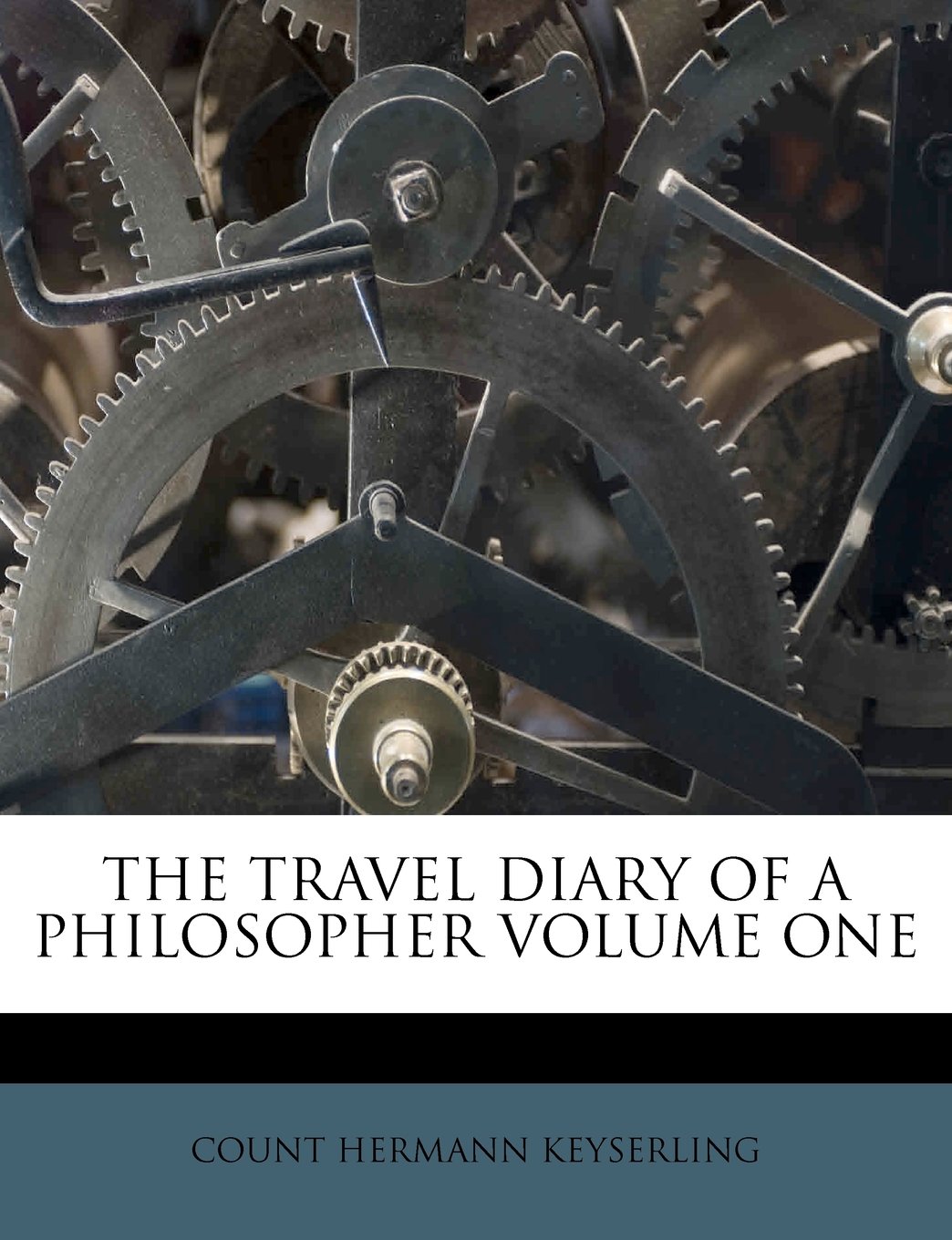
The book that catapulted Heman Keyserling to fame and re-gained fortune, The Travel Diary of a Philosopher, describes the Count’s travel around the world in 1911. He describes the philosophies of the cultures he visited. His journey goes from Egypt, to Ceylon, to India in Volume One, to China, Japan, Hawaii, and the Americas in Volume Two. Count Keyserling knew the elite in these cultures. He connected with the leaders, and entered into the spirit and essence of their cultures. This led to his eventual conception of a planetary philosophy, a synergy of the best from all cultures. For a sample of his writing, consider a selection from Chapter 70 on “America” in the Travel Diary:
The symphony of the spirit upon earth should, in accordance with reasonable prevision, resound with ever-increasing beauty. The individual voices should make themselves heard ever more purely, harmonize better with each other, and be attuned to ever-fuller basic tones.
In another of Count Hermann Keyserling’s many books, The World In The Making, (1927) he speaks about the School of Wisdom in Darmstadt:
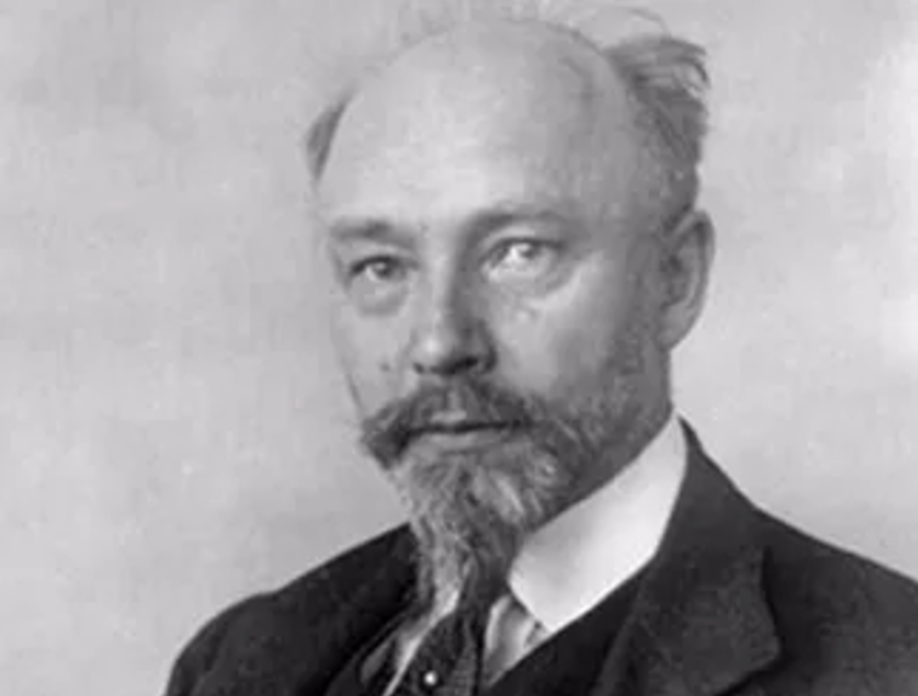
Thus in him who comes to Darmstadt and listens in the right fashion, not in a reflective or critical mood, but adjusted so that the partial perceptions of the truth shall be able to coalesce within him into a higher unity – in him that coalescence will actually take place, even if the process is at first unconscious. Darmstadt does not, then, represent any new abstract theories, but is the concrete experience of a new, higher spiritual reality. It creates in this way that which is the premise for new abstractions. It brings about the transformation in a man whereby he can see the world in another way, with deeper and better insight.
The School of Wisdom undertakes, by means of the proper psychological methods, to assimilate the impulse of life-renewal on the basis of spirit, into the broad body of historical reality.
The School of Wisdom was not intended to be a fixed institution, but rather a personal, living instrument of transmission which serves the understanding, and which seeks to transform life on the basis of understanding. For understanding is always a strictly personal undertaking. It can be inducted from one person to another, from one spirit to another, only in a special situation which cannot be repeated, and only in a special manner.
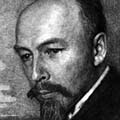
The School was striving to create an “ecumenic culture, a universal human culture” which included all of the seemingly divergent cultures and philosophies of the world, both East and West. The German Universities at the time asked Count Keyserling to make the School of Wisdom part of their tradition, but he refused. He felt that the creation of this new culture required a complete break with the academic educational traditions. Naturally the academics later opposed Count Keyserling and the School of Wisdom, as did many others because of the School’s independent thinking and global egalitarianism. Many considered its ideas to be too far out, especially when it came to recognizing the validity of the spirituality of other cultures. Count Keyserling was an outspoken critic of the governments of Europe at that time, particularly the German government. Ultimately, the forces opposing him, with the help of the Nazis, succeeded in closing the School of Wisdom and nearly killing Keyserling and his family.
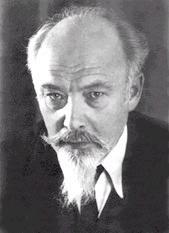
The School of Wisdom was one of the first groups to promote the idea of a world culture which honored and included all spiritual traditions and promoted diversity, not some kind of bland uniform world culture. Count Keyserling would often point out that the School was intended to be all inclusive and open to everyone. In his book Creative Understanding Hermann wrote:
Today, unlike antiquity, wisdom is not the goal of small circles but of all mankind. The symbol of the School of Wisdom is therefore not the closed circle but the open angle.
For this reason the symbol of the School of Wisdom has always been an open angle, which today also includes either a photo of the whole Earth or a person meditating.



Count Keyserling’s many books on philosophy after the Travel Diary expanded on these themes and others. The language is archaic to today’s readers, especially as translated into English, but his many books are still worthwhile reading, including our personal favorites: South American Meditations and Creative Understanding. Of course his first, most famous book is a must read, Travel Diary of a Philosopher, both volumes.
In 1933, after a good thirteen year run, the School of Wisdom was first publicly vilified, then outlawed by the National Socialist Regime. Hermann Keyserling had by then become an outspoken opponent of the Nazis. He would have been killed outright but for his wife’s family fame. Even Hitler would did not dare kill a Bismark. But they did shut him up and make his life miserable. Among other things, they stripped the Count of his German Citizenship because he was an immigrant of Estonia, not a native. They also took away the Citizenship of his sons, even though they had been born in Germany and were the Great Grandsons of Bismarck. The sons were drafted into the Army and the Hermann and Maria were exiled to a remote Bismark castle in Northern Germany. They were isolated and held as virtual prisoners.
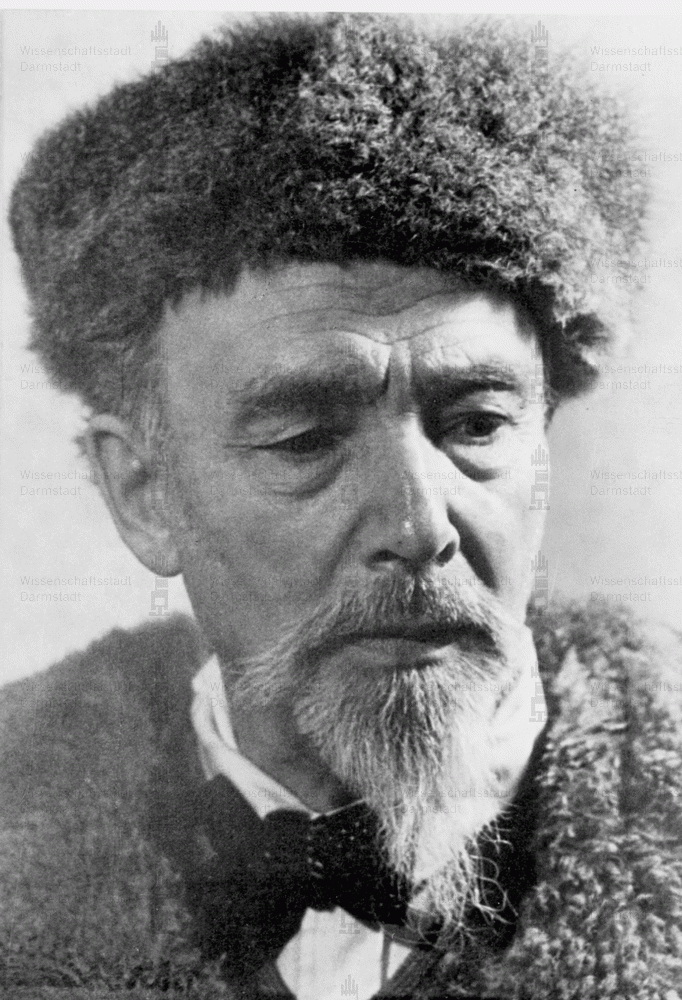
In 1942 Hermann and Maria were allowed to leave Germany for Innsbruck, Austria. There the oppression was less, but they have little property and not enough to eat. After the war ended the Austrian government invited Hermann Keyserling to reopen the School of Wisdom in Innsbruck. Due to the extreme hardships of war, Hermann did not live long enough to do so. He died at age 65 on April 26, 1946 while preparing to reopen the School. His son, Arnold Keyserling, reopened the School of Wisdom in his name just after his father’s death.
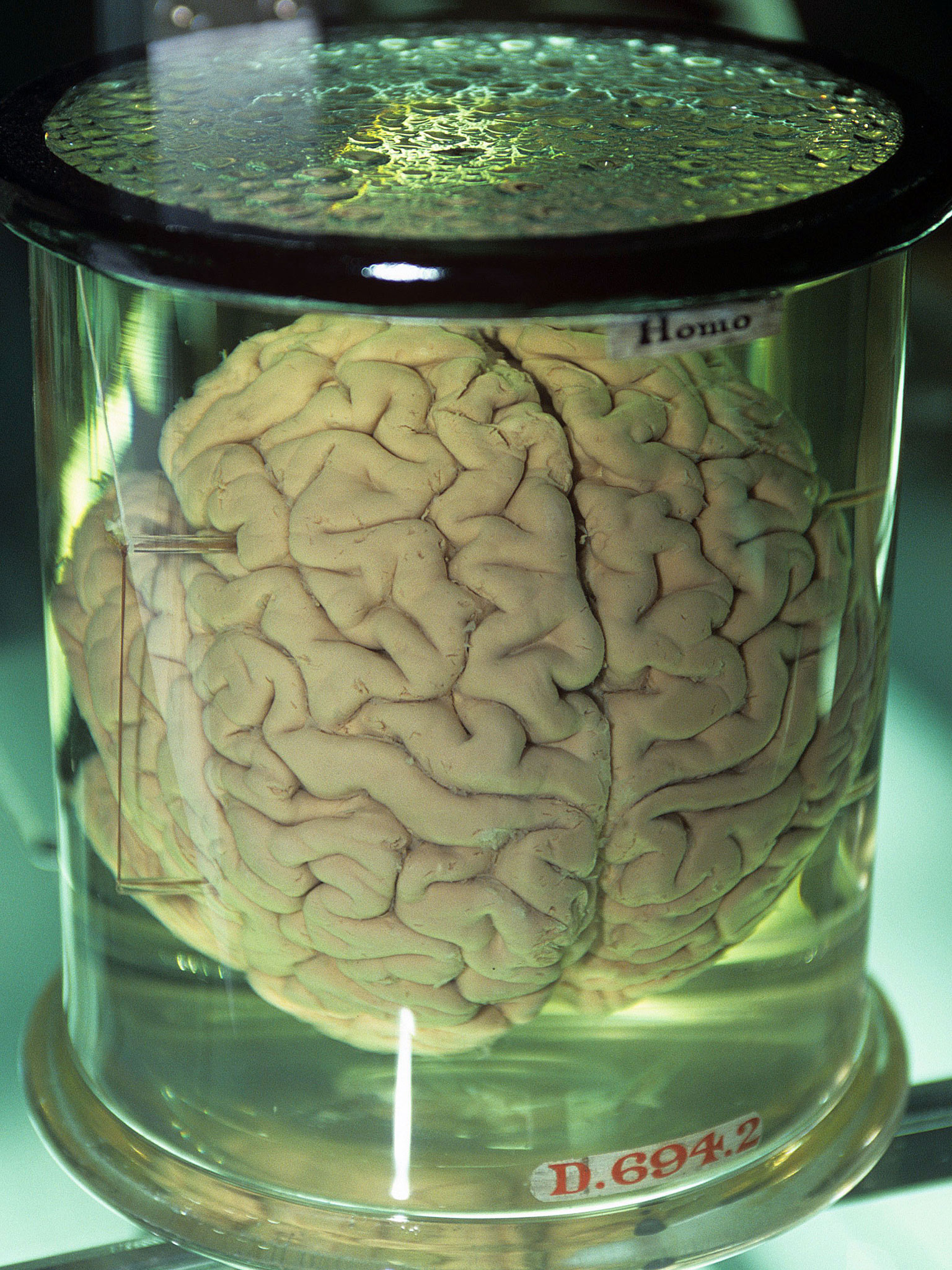
As an interesting, symbolic side note, after Hermann Keyserling died his family was persuaded to donate his brain to science. His brain was preserved and on display in a museum in Berne, Switzerland, with that of other great minds of the 20th century (including Einstein). At the request of the family in 1996 his brain was returned and buried with the rest of his remains. A ceremony was held at his grave site in Innsbruck, Austria, attended by the President of Austria and other political dignitaries and led by his son, Arnold Keyserling.
The Keyserling family had been convinced in 1946 that important knowledge might be gained by studying his brain. The scientists actually thought that the body, particularly the brain, was the source of the human spirit, of human intelligence. For that reason they took the brains of a lot of great men who died at the time – the forties through the sixties, including Albert Einstein. They thought that they could learn something of value by studying the “gray matter” left behind. This field of scientific inquiry produced very few results. The brains of the great, like Count Keyserling, seemed the same as the mediocre.
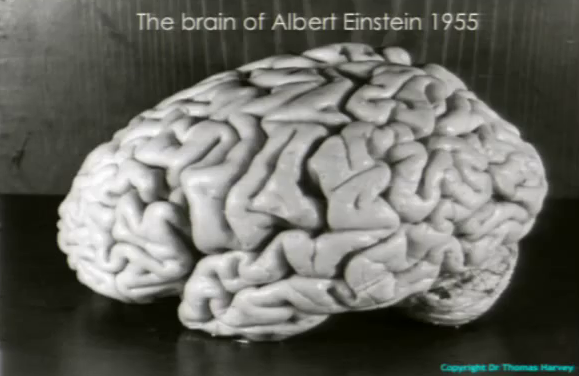
The error of the family to allow this separation, this glorification of a body part, has been corrected. The physical remains are now whole. The body is together where it belongs after death – in the Earth, not on display on a museum. The Spirit of the founder of the School of Wisdom, after 50 years of unrest, was finally at peace. His gravesite below later became a family grave for Hermann, Maria and Arnold.
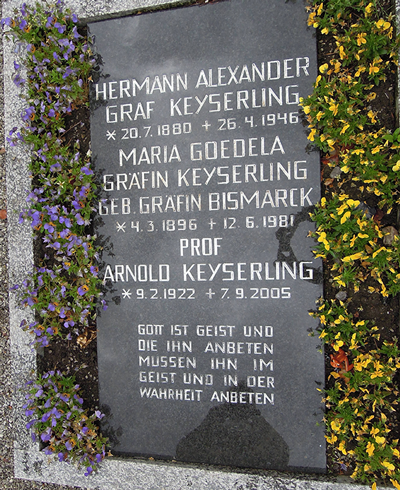
Mantle Passes to Arnold Keyserling (1922-2005)
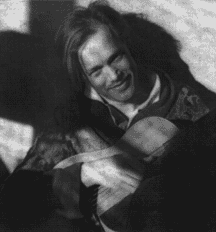
Shown right is a family photo of Arnold Keyserling playing guitar at age 26. It was taken in the late 1940’s, shortly after Hermann died, his brain was snatched, and Arnold inherited the School of Wisdom. The School’s facility was literally the family home in Darmstadt Germany where Arnold grew up as a child. It was in his blood. Arnold was only 24 at the time, but, with the government’s help, he still managed to pull off a few public events. At that time Arnold and his wife to be, Wilhelmine, were both students and friends of George Gurdjieff in Paris. Arnold commuted there every weekend to be with them.
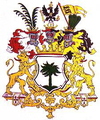
Arnold Keyserling, the great grandson of Chancellor Bismark, would thereafter put on public events in Austria under the School’s name. After the initial reopening, he only did so infrequently. Arnold rejected his nobility titles and took a strong anti-establishment path. That part of his father’s teaching, about the strength of artistocracy, was likewise rejected by Arbold and his new School of Wisdom. Instead, Arnold and the School promoted democracy in both the spirit, as before, but now also in government.
Although Arnold was greatly influenced by his father, he pursued his own spiritual path. At the time of his father’s death this primarily meant the ideas and exercises of Gurdjieff. Arnold and his wife to be were very close to George and always spoke of Gurdjieff with high praise and even wonder. Although Arnold was pursuing his own path, he did so in a similar manner to his father. He travelled extensively around Europe both during and after WWII. He even travelled to the Far East and ended up living in Calcutta, India from 1959 to 1962.
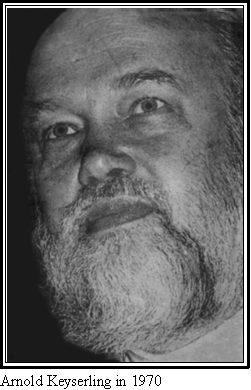
After his return to Austria in 1963, and appointment as a Professor at the Academy of Art in Vienna, Arnold became known in the late 1960s as the first “New Age” philosopher in Europe. Arnold Keyserling developed a systematic planetary philosophy which incorporated all of the world’s great traditions, East and West. He taught students to think for themselves to find personal meaning and fulfillment. His teachings always included and emphasized Greek philosophy, especially Pre-Socratics and Socrates himself. Arnold as a Professor taught the history of philosophy, both Western and Asia. His own work was a kind of combination of Socrates and Pythagoras and always included numbers and basic math charges with symbolism. Arnold’s ultimate work as a philosopher a new type of reconnection to the Universe that included both science and the ultimate values of all religions. His work also included traditional studies of time patterns that followed archetypes and consciousness in a complicated symbol he called “The Wheel.” The symbol included the Nine Step Enneagram that he learned from Gurdjieff.
Arnold and his wife, Wilhelmine Keyserling, following in Hermann’s tradition, introduced many foreign spiritual traditions to Europe. They did so respectfully and with full understanding of the spirit and practices. Willy especially was adept at that, as she also taught Hatha Yoga most every day. They both taught meditation. They were not only one of the first to introduce the practice of Yoga in Europe in the 1960s, but also the first to introduce the Human Potential movement and Native American shamans in the 1970’s and 1980’s. In the 1980’s Arnold was elected President of the European Association of Humanistic Psychology. He seldom used the name School of Wisdom to teach in those days, but would talk about the School itself and some of its ideas.
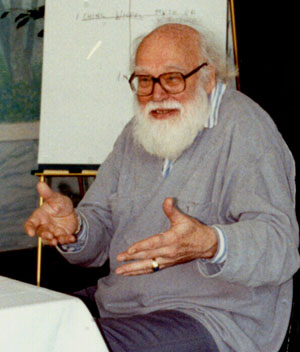
Like his father, Hermann Keyserling, Arnold was a prodigious author. He wrote thousands of articles and over fifty books. Unlike his father, his books were never popular, much less bestsellers. Arnold had a gift for gab, not penmanship. His gift was the brilliance of his ideas, along with his incredible presence and charisma. He became a renowned teacher in Vienna by the late 1960s and then all of Europe by 70s and 80s. He was a polylinguist who taught in many languages, always with humor and a deep bullfrog voice.
By the 1990s he was teaching all over the world in Human Potential and New Age workshops. Like his father Arnold disliked and avoided academic events. Like his father Arnold had an innate talent for speech. He could quickly mesmerize most people with presence, his spiritual awareness, his vast knowledge and desire to teach. When he was with a group of students he would never stop. You might not understand most of what he was saying, but you could tell that he made sense, was sharing a powerful truth. You could easily sense that he was speaking from deep understanding and knowledge. He was wisdom incarnate. But also a joker, and, despite himself, still somewhat of an aristocrat. Like his teacher at the time of his father’s death, George Gurdjieff, he would often teach at elaborate dinners with good food and drink.
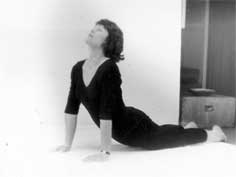
Arnold was a passionate scholar. He was always reading, often several books in a day. He would then somewhat modify and adapt his philosophy to incorporate the latest information, the latest scientific breakthrough or latest book and ideas from some new genius he met. He had many friends all over the world. He often admired the work of others and respected all spiritual traditions. Truth could be found in many places. He would incorporate science and math into spiritual ideas in sometime very unique and creative ways. He would also do Hatha Yoga with his wife most days and was a life-long meditation practitioner. Near the end of his life Arnold became an incredible mindfullness leader. His impact on large crowds using guided imageries was sometimes amazing.
Arnold learned much from his wife, Wilhelmine or Willy. They always worked together as a couple, although they did have an unusual marriage. Willy taught Yoga almost daily in Vienna upon their return from Calcutta in late 1962 to her death on October 4, 2010. She was a charismatic leader in her own right and equal co-leader with Arnold whenever they appeared together.
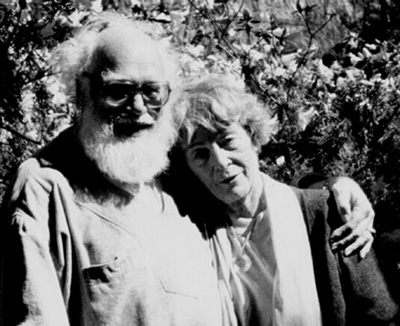
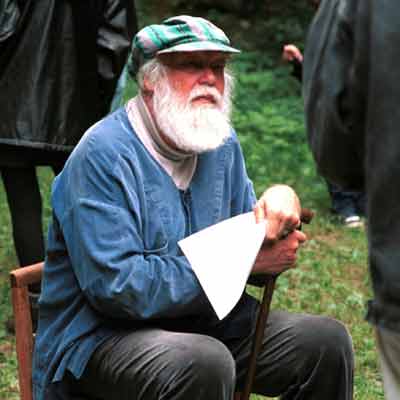
Arnold Keyserling started using the School of Wisdom’s name again in the late 1980s after some of his American students started asking him about it. The ideas of Hermann Keyserling are not expressly included in Arnold’s teachings, but it is not hard to see how Arnold’s ideas flow directly out of those of his father. He readily acknowledged the importance of his fathers idea on his own. In fact, he considered his work to be a fulfillment of that of his father, except for his father’s infatuation with his own aristocratic culture. Arnold’s ideas and knowledge went beyond that of Hermann. Arnold was heavily influenced as a young man not only by George Gurdjieff, who was his first outside teacher, but then by Ramana Maharishi, and Josef Matthias Hauer (mystical 20th Century composer who started 12-tone music). This unusual combination of teachers is shown below.
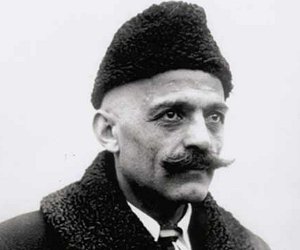
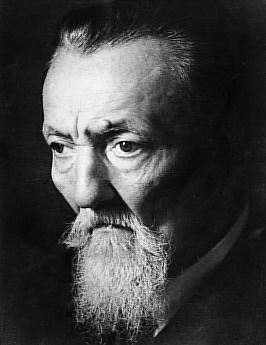
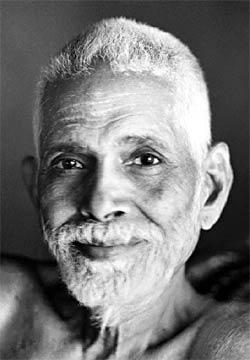
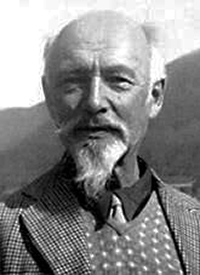
Mantel Passes to the Keyserling’s American Students in Mid-90s
In the 1990s the focus of the School of Wisdom changed again. In the early 1990s there was a flurry of in-person lectures, seminars and public events by Arnold Keyserling in the U.S., Europe and Asia. One of Arnold’s main messages at that time was that the future would be dominated by technology, especially computers. Unlike most everyone else at the time, he called the Age of Aquarius the Age of Technology. He was especially impressed by the potential of the then new Internet to promote a new world culture.
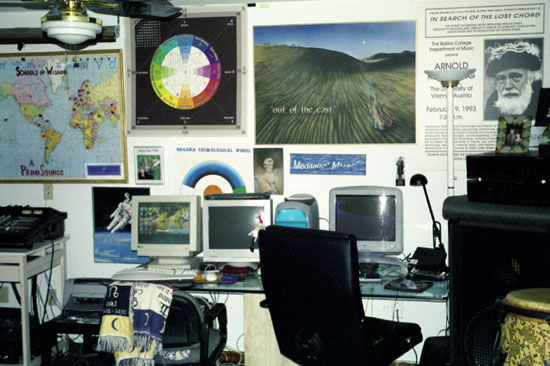
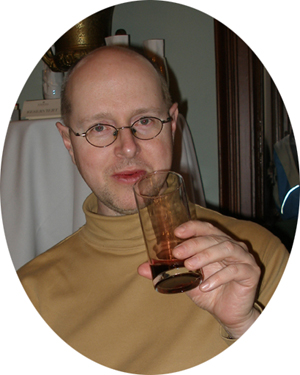
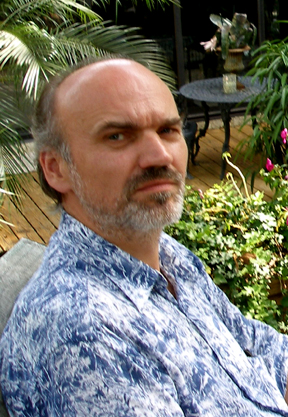
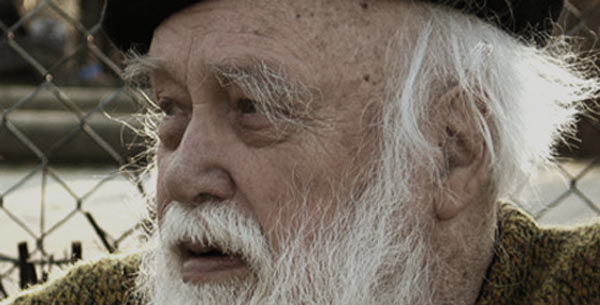
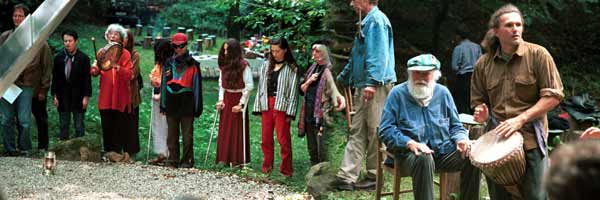
Some of Arnold’s students were advanced technologists, programmers and early online adopters. By the mid-1990s Arnold wanted to turn control of the School of Wisdom over to his American students, at least the ones who understood his ideas (by this time one was co-writing books in English with Arnold). He thought they had the kind of special computer expertise needed to keep the School of Wisdom relevant. As Count Keyserling had previously declared, the School was never intended to be a fixed institution, but rather a personal, living instrument of transmission which serves the understanding, and which seeks to transform life on the basis of understanding.
The Americans agreed to Arnold’s request. They thought that the Internet could be a personal, living instrument of transmission. And that is could help others to improve their understanding of spirit on their role in the world. Arnold, then in his mid-seventies, happily became a figurehead, inspiration and dear friend of the School of Wisdom. At that transition time greater emphasis was already being placed on Music, Meditation, Healing, New Science, Chaos Theories, Law, Technology and Cyberspace. The Americans continued this direction.


In the mid-90s the Internet was just starting to become a global presence. Arnold loved the idea of the Internet. They gradually switched all of the School’s activities to the Internet. The School has at all times since 1996 provided free online information 24/7 concerning the ideas of the Keyserlings and still evolving ideas of the School itself. That included information from wisdom teachings around the world, both ancient and modern, including science and psychology. The purpose of the information provided by the School of Wisdom was not to provide anyone with answers. The purpose was to provide people with tools by which they could find their own answers, their own understanding. Each person was free to find the teachings and traditions that spoke to them. The School wanted to help everyone to find their unique work for Humanity and the Earth. It was a goal of meaningful work and personal, spiritual realization.

The new Internet based School of Wisdom tried to continue its multicultural history by transforming the motto popular in the 1990s – “Think Global and Act Local” into “Think Universal and Act Global.” The School hoped to do that by using the Internet to create a global network of friends. They were seeking to make the Internet classes a personal, living instrument of transmission. They understood that wisdom was a goal for everyone, that, unlike in the past, wisdom was no longer for closed groups. They understood the Open Angle as the School’s original symbol. The Internet made the School’s ideas and practices open to the whole world. The global network goal met with only limited success for a variety of reasons. (FaceBook was still years away, and when FB did come out, right or wrong, the Americans did not consider it a suitable forum.)
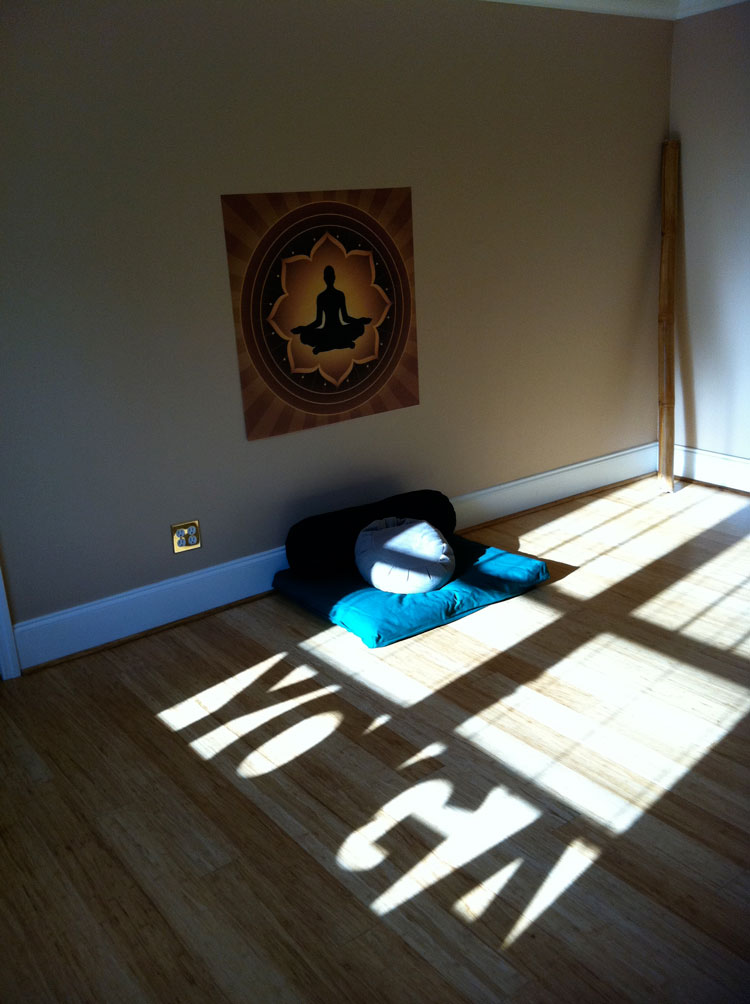
Still, the the information broadcast goals of this phase of the School of Wisdom were successful. Many different methods and procedures were shared. This was a wisdom based on inner Awareness through Yoga, meditation, music and mindfulness practices. It was not a wisdom based on different beliefs or ideologies. True to the Keyserlings’ original ideas this was wisdom based on the common denominators of the natural world, our bodies, consciousness, language, number, geometry and science. World mythologies, philosophy, science, mathematics, psychology and most of the world’s great spiritual traditions were included in an eclectic study. Hundreds of thousands of people have heard this message online and resonated with it. The understanding of many was enlarged and deepened.
The School of Wisdom remained adamantly non-ideological throughout its long history, including this first Internet phase. At the time, this meant we were apolitical. We celebrated with Arnold Keyserling the demise of the Soviet Union, the fall of the Berlin Wall and the liberation of the Keyserlings’ home country, Estonia. But pushing for this positive change and opposing these totalitarian regimes was not part of our agenda.
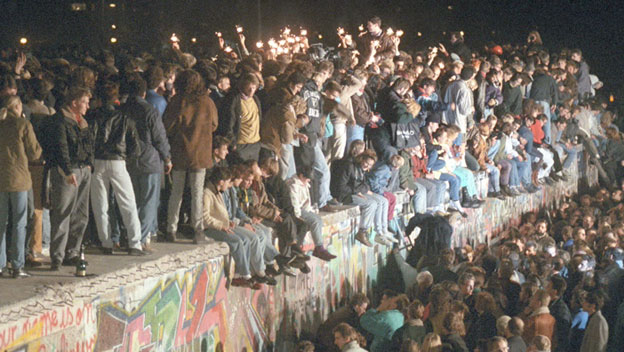
The message of the School of Wisdom in this phase, as before, stressed the importance of each individual finding their own meaning in life, their own fulfillment in work. Improved personal understanding led to action. The emphasis place on fulfillment in work was somewhat new and mirrored Arnold Keyserlings own new thinking. Everyone came up with their own understanding of meaning. Specific answers to the ultimate questions were never provided. That is understanding work for the students to do for themselves. Students talked about their answers, of course. They did so constantly, but not in an authoritarian manner. They talked about it as equal friends. The Americans at the time had little cause to help fight oppression at home or otherwise take political actions. We were too busy improving on our own understanding and our own work to try to benefit the world.
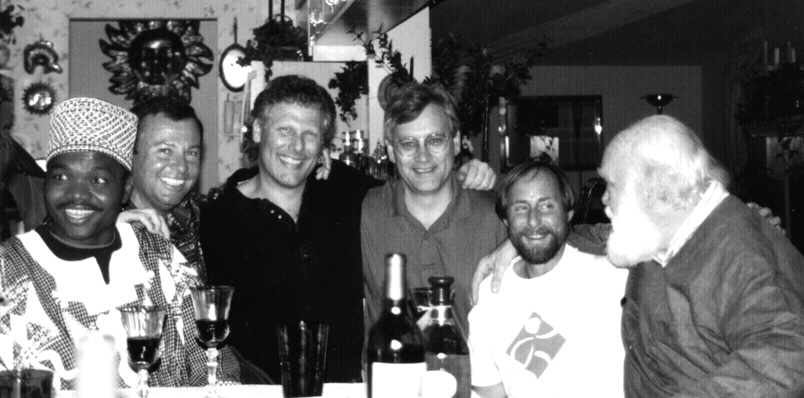
Providing information on self discovery tools apparently helped some students around the world. But only those with strong self-initiative and other training. Since the online community element did not materialize, the usefulness of the Online Era slowly faded. After Google was perfected the need for a reference tool like the School of Wisdom also decreased. Anyone could find any information they might need via Internet. The School of Wisdom’s prior information service activities eventually became obsolete. Over time so too did much of the information they shared. Thus the need for the School to reinvent itself again in 2017. As Herman said from the beginning, the School of Wisdom was not intended to be a fixed institution, but rather a personal, living instrument of transmission.
School of Wisdom Today – 2017 Forward

The School of Wisdom awakens and reinvents itself again. A new iteration begins. We are still focused on wisdom, on practices, meditations and personal understanding, and not on ideologies. But the times have changed and entered a dangerous era. Political conditions are similar, at least in a fractal recursive manner, to that endured by Hermann Keyserling under the National Socialists. We realize that we must speak out now before free-thinkers like ourselves are outlawed and persecuted. We must add a political dimension to the School of Wisdom. We cannot be a living instrument of transmission without it. Political action is now part of our essential mission statement.
We will be political, but, at the same time will retain our outsider status. We will not be a part of any political party. We do so for the same reasons the School of Wisdom has always been independent, it allows for better leverage to change the world, both inside and out. In the world, but above it, with a cosmic perspective.

The School of Wisdom will continue to oppose ideologies in all forms and by any parties, but our political focus will be on opposing Big Brother type governments.The Keyserling family paid a heavy price for Herman Keyserling’s opposition of Hitler, so did the School itself, so did the whole world. This sacrifice must never be forgotten. This terror must never be allowed again. The open angel angle will prevail over the swastika.
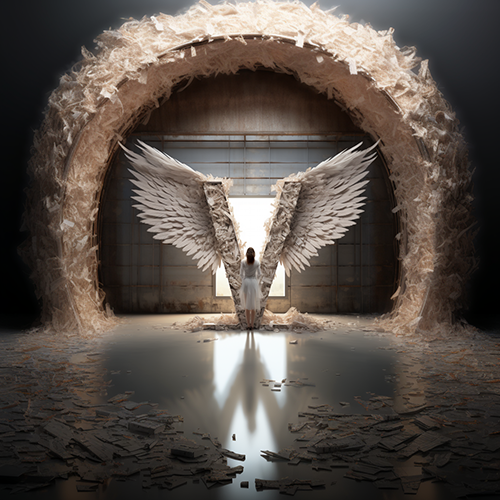
The School of Wisdom today is committed to political action based on diversity, tolerance and love. We will oppose the politics of fear, hate, prejudice and uniformity. We will fight the neo-Nazis, the communists, the fascists, terrorists and whatever other totalitarian groups may arise to stand in the way of diversity, to stand in the way of wisdom. We will fight Big Brother, in the streets if necessary, but we will do so out of love not hate. Wisdom needs individual liberties and freedom to prosper. This is now a fundamental precept of the School of Wisdom. We will never be shut down by Nazis again.
We are encouraged by the famous civil disobedience quote of Hermann Keyserling: No radical change on the plane of history is possible without crime. We will sit at the front of the bus even if the law forbids it. This is civil disobedience, not anarchy. We will challenge the misuse of authority. We will oppose both corrupt religious leaders and corrupt politicians. We will fight them all, but do so from out of a calm center, a place of love, not hate. This is tough love.

As we embrace a more worldly role of political engagement, we will continue our Mindfulness and Yoga exercises. We will continue our spiritual path. Politics and spirit must unite and inform each other.
Our opposition to Gurus applies to any political group, any religion, event to our own leaders. This is one reason that the American leaders of the School of Wisdom remain anonymous for now. Arnold insisted that he never be made into a Guru type figure. Near the end of his life, by which time he was legendary in Austria, he used to begin each class at the Academy of Art where he taught the same way. He would hold up a stuffed toy kangaroo and say: The only good guru is a kangaroo. Humor was one of his most charming personal characteristics. We hope to continue that tradition as well.
On the positive side, the School of Wisdom will continue its dedication to multi-cultural diversity and spiritual democracy. We will continue to provide tools, not one size fits all answers. We will continue our dedication to meditation and Yoga type exercise. We will continue to ask every one to Think Universal and Act Global. This remains our motto.
Our actions will be more political, more vocal and aggressive in our opposition to authoritarianism. We will speak out in all fields of culture and in all countries. We will, if necessary, take the same risks that Herman Keyserling took in opposing Nazi Germany in thirties.
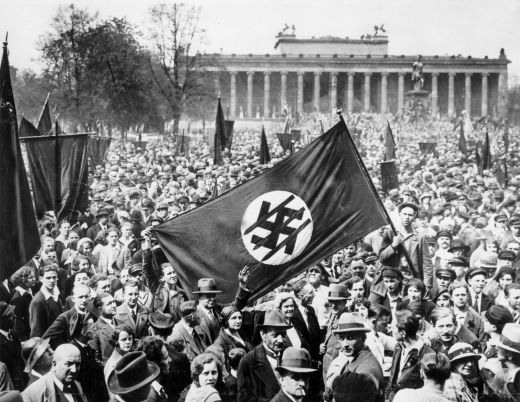
We will take the same risks that the young Arnold Keyserling took in hiding Jews in WWII. We will take the same risks that Arnold took when sneaking into Estonia during the Soviet era. We will be fearless and hateless in exposing repression of our values of multiculturalism and democracy. We will be fearless and hateless in fighting repression of our values of multiculturalism. We will be fearless and hateless in fighting repression of our values of spiritual and political democracy.
We will oppose political and spiritual demagogues. We will fight for the triumph of truth. We will actively promote both democracy and progressive multicultural values. We will push for democratic processes whenever and wherever possible. That includes government, religion, academia and science.
The other fundamental change we have already made is to completely revise the information we provide online. It has been streamlined and made more contemporary, more relevant to today’s culture. The esoteric, hard to understand materials of Arnold Keyserling have been eliminated for that reason. The only classes that remain from the prior version of our webs are Chaos and Fractals and Visions and Poems. We will revise and post on our Blog other materials from our original webs. They will first be revised to reflect our latest understanding.
We are looking for suitable new materials. Please make any submission or submission proposals to Ralph.Losey@gmail.com.